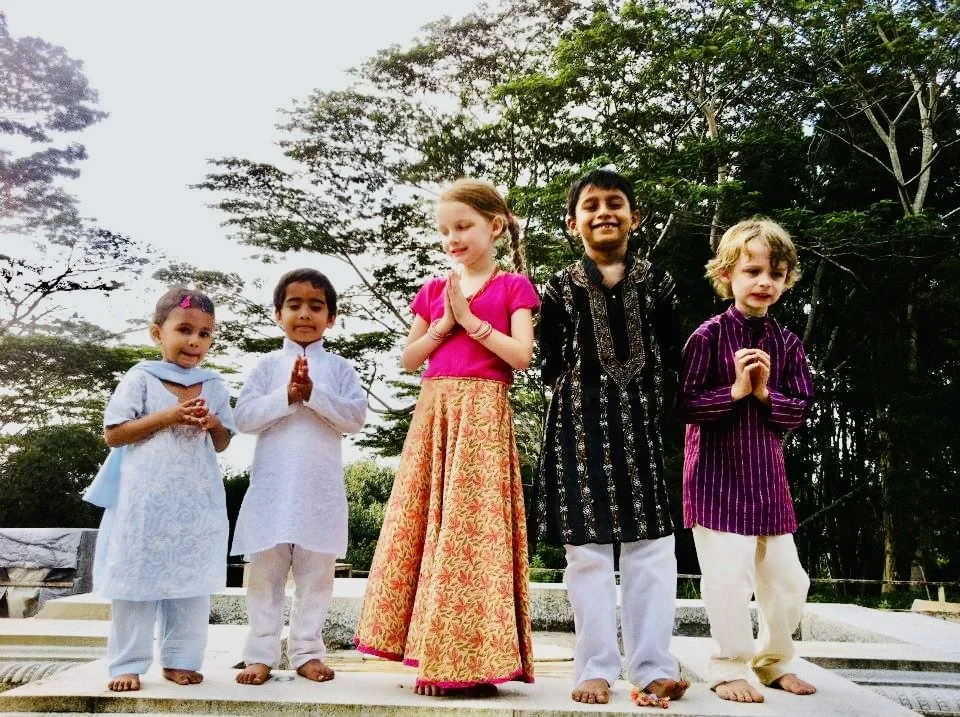
Hinduism can be a way of life—a highly spiritual way of life!
Hinduism emphasizes that every individual is a divine being, a blissful and pure soul, journeying through many lives to shed layers of lower qualities, attain maturity in wisdom, and achieve spiritual growth. Hinduism offers teachings and tools such as karma, dharma, selfless service, ahimsa (non-violence), meditation and worship, learning from an enlightened master, scripture study. These practices help us overcome fear, anger, and stress, enabling us to live joyfully and productively.
The nine beliefs, listed below, from Guru’s Wisdom, summarize the essential Hindu philosophy.
NINE BELIEFS OF HINDUISM
-
Hindus believe in the divinity of the Vedas, the world’s most ancient scripture, and venerate the Agamas as equally revealed. These primordial hymns are God’s word and the bedrock of Sanatana Dharma, the eternal religion which has neither beginning nor end.
-
Hindus believe in a one, all-pervasive Supreme Being who is both immanent and transcendent, both Creator and Unmanifest Reality.
-
Hindus believe there are three worlds of existence—physical, astral and causal—and that the universe undergoes endless cycles of creation, preservation and dissolution.
-
Hindus believe in karma—the law of cause and effect by which each individual creates his own destiny by his thoughts, words and deeds—and in dharma, righteous living.
-
Hindus believe that the soul reincarnates, evolving through many births until all karmas have been resolved, and moksha—spiritual knowledge and liberation from the cycle of rebirth—is attained. Not a single soul will be eternally deprived of this destiny.
-
Hindus believe that divine beings exist in unseen worlds and that temple worship, rituals, sacraments as well as personal devotionals create a communion with these devas and Gods.
-
Hindus believe that a spiritually awakened master, or Satguru, is essential to know the Transcendent Absolute, as are personal discipline, good conduct, purification, pilgrimage, self-inquiry and meditation.
-
Hindus believe that all life is sacred, to be loved and revered, and therefore practice ahimsa, “noninjury.”
-
Hindus believe that no particular religion teaches the only way to salvation above all others, but that all genuine religious paths are facets of God’s Pure Love and Light, deserving tolerance and understanding.


